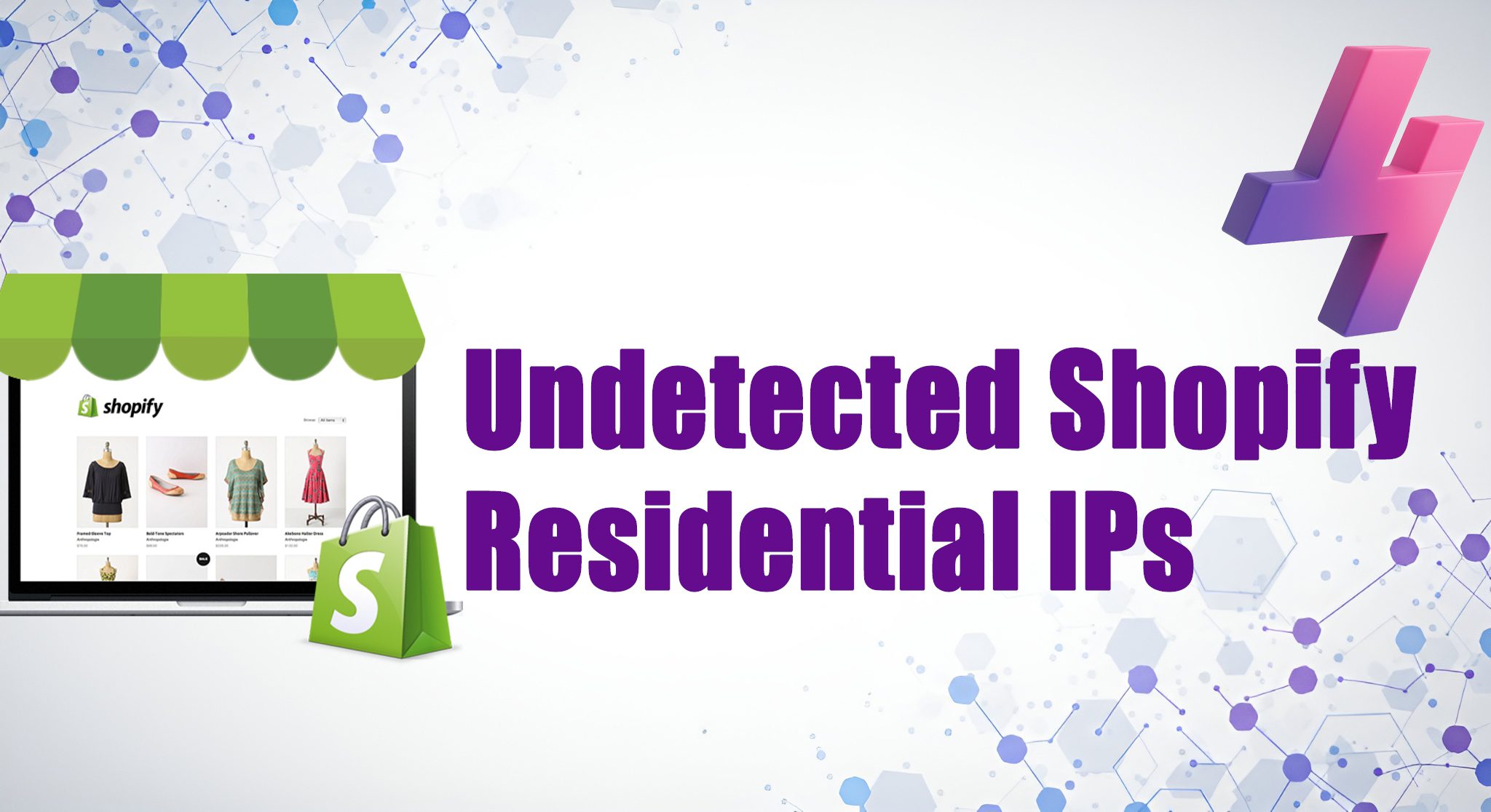How to Stay Undetected Using Shopify Residential IPs in 2025
Shopify doesn’t play when it comes to bots. Their system flags unusual traffic fast, be it you are running product monitors, automating checkouts, or juggling multiple stores. One wrong IP and you are looking at bans, CAPTCHAs, or locked accounts.
That is why a lot of people are turning to residential IPs. They make your traffic look like it is coming from a real person, not a bot. Used properly, they help you stay low-key, stable, and under Shopify’s radar.
What is a Shopify Residential IP?
It is basically an IP address that comes from an actual household, assigned by a legit internet provider. Unlike datacenter proxies, which are hosted on servers and often trigger alarms, residential IPs look organic to Shopify. They give you a better shot at flying under the radar.
So if you are hitting Shopify domains over and over, for automation, scraping, or running several accounts, a residential IP makes you way less likely to get blocked.
Why Bother With Residential IPs?
Here’s why they still win in 2025:
- Low detection risk: Shopify’s systems are tuned to catch datacenter IP patterns. Residential ones feel more natural, so you are less likely to get flagged.
- Stable sessions: Whether you’re using rotating or sticky proxies, you will stay logged in and avoid annoying errors.
- Geo-targeting: Want to access a region-specific store or campaign? No problem. Just pick an IP from that area and you are in.
Static vs. Rotating: What’s the Difference?
- Rotating residential IPs: switch out automatically and it is great for scraping or high-volume tasks.
- Static (or sticky) IPs: keep the same identity during a session. These are ideal when you are checking out or logging into accounts.
Some users also go for ISP proxies and this is a solid mix of speed (like datacenter IPs) and trustworthiness (like residential). If you are doing fast tasks that still need to look human, they are a good middle ground.
Simple Rules To Staying Undetected
If you want to stay invisible, don’t just rely on proxies. Do this too:
i) Rotate user agents and avoid leaving a browser fingerprint.
ii) Randomize your activity, don’t click the same way every time.
iii) Choose proxies close to Shopify’s servers (North America is usually safest).
iv) Keep an eye on your IP’s reputation. If it gets flagged, swap it out.
Anti-detect browsers and session managers can help with this, they make it easier to look like a unique user every time.
Where to Get Good Residential IPs
Stick with trusted providers. Bright Data, Soax, Oxylabs and a rising favorite, Ziny Proxy, all offer reliable residential IP pools tailored for Shopify tasks.
If you are trying to scale or automate anything on Shopify, datacenter proxies alone won’t cut it anymore. The wrong IP could flag your activity, block your access, or even jeopardize your store. That is why serious users are shifting to providers like Ziny Proxy, which offers clean, rotating and sticky residential IPs designed to mimic real user behavior and avoid detection.
With the right setup, smart browsing habits, and maybe a few anti-detect tools, you will stay ahead of Shopify’s ever-tightening filters.
Bottom line? Shopify watches your IP like a hawk.

